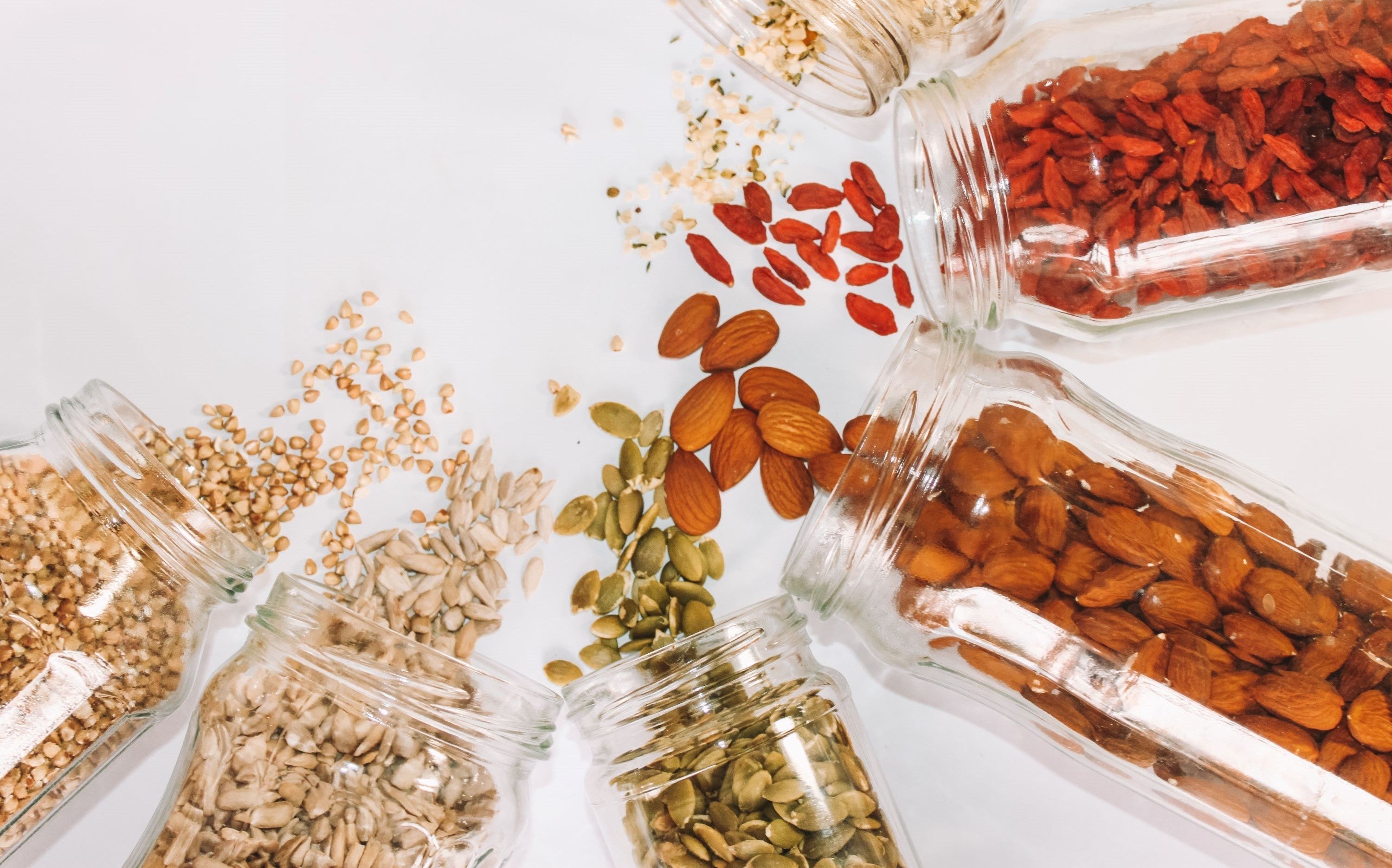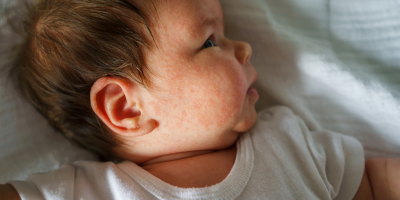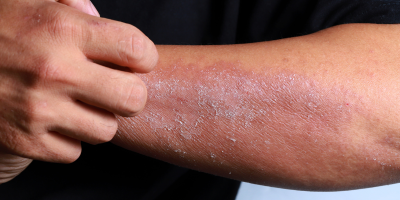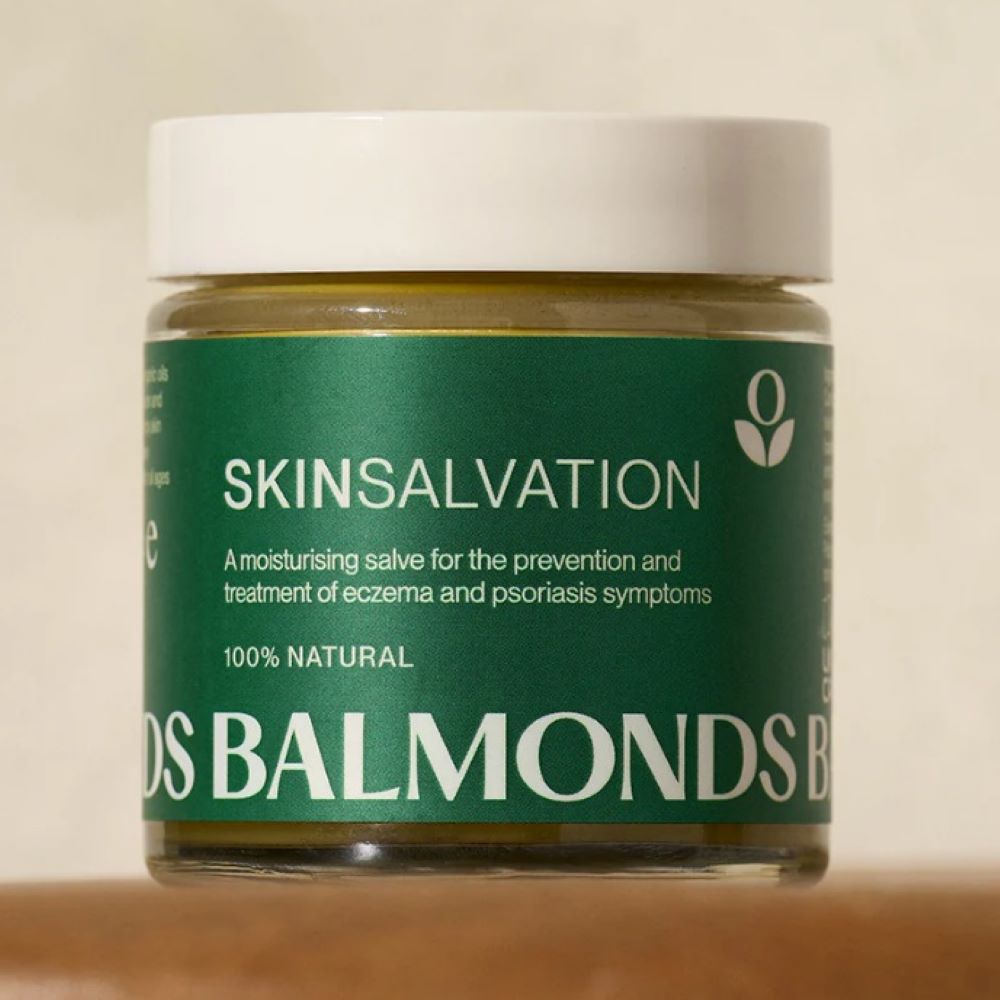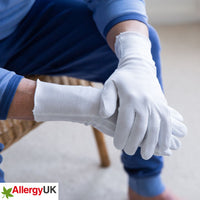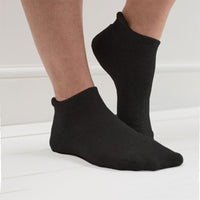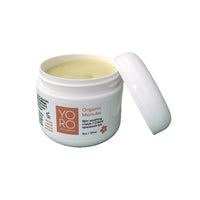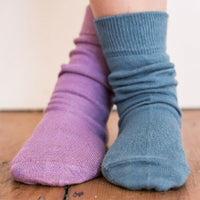You are what you eat, so the saying goes. Does what you eat contribute to your eczema?
In our recent survey we found that 60% of you with eczema also had allergies! A lot of these were environmental triggers, such as pollen, mould and dust. However around 20% had food allergies and in the US, the National Eczema Association claims that up to 30% of eczema sufferers will also have food allergies. So, we know that many people with eczema experience common food triggers, and eliminating specific foods may lead to significant improvements.
It is worth noting that some food reactions can take up to 72 hours before symptoms appear – making them harder to identify and less likely to show up on an allergy test. In addition, some people can feel like there are lots of triggers which can feel overwhelming.
➡️Nutritionist Top Tip: If there is an allergy then reactions can be experienced anywhere in the body and not just through the skin, so try to be mindful and pay attention to what your body is saying.
If you are considering making significant dietary changes to manage your eczema, it is crucial to consult with a healthcare professional, registered dietitian or qualified nutritional therapist who specialises in eczema and allergies. Each food we remove provides certain nutrients and by taking these out, in some people, can lead to the start of restrictive eating or possibly nutrient deficiencies. In addition to this, foods added in as a replacement may lead to skin flares – in particular switching from dairy to certain plant-based milks or choosing gluten free products that can be loaded with inflammatory ingredients.
So, what are the common triggers? What foods should we consider including or avoiding to better manage symptoms?
Foods that can irritate eczema
Maintaining an eczema-friendly diet is a key component to the overall management of symptoms. Not everyone will have the same reactions or flare-ups to the same foods but limiting or eliminating foods that may impact your immune system is a great place to start.
Common food allergens: Dairy, wheat, gluten, eggs, peanuts, soya and in some cases, lectins have been shown to exacerbate eczema symptoms.
➡️Nutritionist Top Tip: We can be allergic to anything and not just the common allergens so keep notes on foods you think may be causing a problem. Don’t assume it's always the obvious ones!
Histamine: A chemical that is naturally present in our bodies and found in certain foods. Some individuals may have difficulty breaking down histamine, leading to a buildup of the chemical in the body and resulting in skin reactions such as eczema. Foods that are high in histamine or trigger its release include fermented foods, citrus, hard and mature cheese, processed meat, alcohol, caffeine, and tinned foods. Interestingly, the amount of histamine in these foods can increase as they are stored.
➡️Nutritionist Top Tip: Reduce histamine levels by freezing leftovers instead of storing them in the fridge. Additionally, staying hydrated can also assist your body in managing the itch associated with eczema. But remember, a low histamine diet may not be right for everyone and it's important to work with a professional to determine the best approach for your individual needs.
Exposure to pesticides: To reduce exposure to environmental toxins and pesticides, it is important to choose organic foods whenever possible. Organic foods are grown without the use of synthetic pesticides and fertilizers, making them a safer choice for you and the environment.
➡️Nutritionist Top Tip: Soft fruits like raspberries absorb pesticides into their flesh, whereas generally foods with a hard skin that can be peeled, such as avocado, will mean less pesticides. It is also important to wash fruits and vegetables thoroughly before consuming them to remove any residual pesticides. If you live near or in an area where pesticides are sprayed, then consider an air purifier or filter.
Reduce refined sugars: As they may increase inflammation of the skin due to their effect on the hormone insulin. Refined sugars are processed, unlike natural sugars found in fruit and dairy.
➡️Nutritionist Top tip: Read all labels of foods and drinks to check for sugar. Look out for (and avoid if possible) : glucose, fructose, sucrose, dextrose, syrups and high fructose corn syrups.
Other problematic foods may include acidic fruits, yeast, tomatoes, fried or processed foods. As you can see the list has the potential to be endless and it will always be personal to you. If you are struggling to identify a culprit seeing a qualified professional will help you navigate the minefield and find solutions that work for you.
Foods that can help with eczema
It's not all doom and gloom!
Eating an anti-inflammatory diet, supporting the gut barrier functions and increasing hydration may help lessen eczema symptoms, here are our top tips:
The inclusion of key vitamins such as Vitamin A, C, D and E in your diet is crucial but supplements aren't always necessary and can be detrimental.
➡️Nutritionist Top Tip: Vitamins A and D are fat soluble and are therefore stored in our body. This can lead to toxicity if they are taken in large quantities. Tests can be done to check your levels to see if a supplement is needed.
Also consider...
Zinc, which supports skin integrity and immunity, reducing inflammation and improving eczema symptoms. Good sources include oysters, crab, organic beef,
pumpkin seeds, cashews, chickpeas, almonds, kidney beans, spinach.
Omega 3 rich foods which improve skin hydration and reduce inflammation. Mackerel, sardines and anchovies from sustainable and traceable sources. Flax, chia, seaweed, spirulina and some nuts and seeds are good vegetarian alternatives.
Water-rich foods such as watermelon, strawberries, and cucumber to support hydration.
If you suspect that certain foods are triggering your eczema, keeping a food diary can be helpful in identifying potential culprits. By tracking your diet and eczema symptoms, you can better understand any patterns or associations between specific foods and flare-ups. Especially as Allergy tests might be negative if there is a delayed reaction.
While nutrition can influence eczema, it is just one piece of the puzzle and needs to be considered alongside other factors, such as suitable clothing, environmental triggers, hormones, stress, and skin care routines.
At Eczema Clothing we specialise in clothing that helps to reduce the itch, support sleep, and allow skin to heal. In many people with eczema, it is the itching that keeps the cycle going and creating a barrier through clothing reduces the broken skin which can lead to infections.
Check out our own brand range of specialist, 100% organic cotton nightwear that has recently been approved by Allergy UK as suitable for people with eczema, sensitive skin and allergies to dust mites, latex and synthetic fibres.
We'd like to thank Gillian Cohen (Registered Nutritional Therapy Practitioner mBANT mANP mCNHC) for sharing her tips and advice with us.
Click here to follow Gillian on Instagram - @gillian_cohen_wellness or visit her professional profile here.

